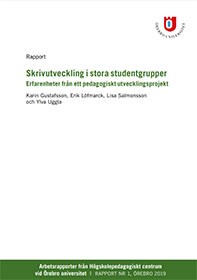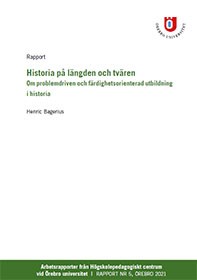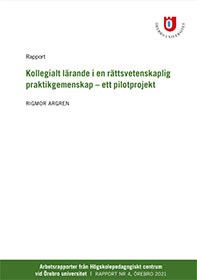Working Papers from the Centre for Academic Development
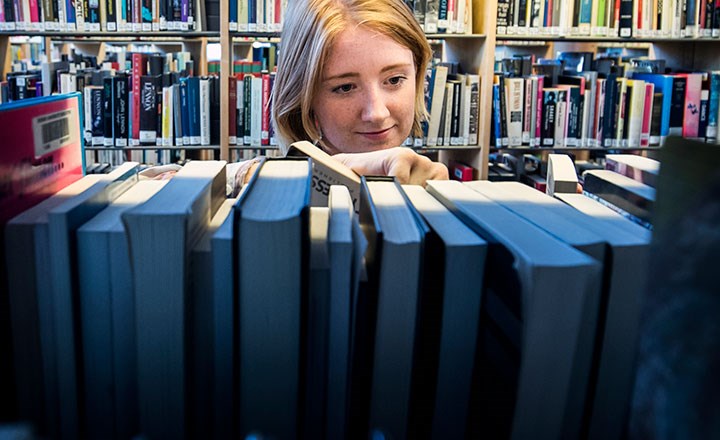
Working Papers from the Centre for Academic Development at Örebro University is a series aimed at stimulating scientific discourse on teaching and learning in higher education.
At Örebro University, there is a range of ongoing educational development projects. These include projects hosted at the Centre for Academic Development and those initiated by teachers and researchers at school level. The Working Papers serve as a simple and accessible publication channel for those involved in educational development projects at the university.
Series editorial team
The series is currently led by two editors, Associate Professor Henric Bagerius (henric.bagerius@oru.se) and Senior Lecturer Eric Borgström (eric.borgstrom@oru.se). The editorial team also receives support from the Centre for Academic Development.
Working Paper 5
Författare: Henric Bagerius
This report presents a pedagogical project that focuses on developing a problem-driven and skill-oriented introductory course in history in the teachers’ training program at Örebro University. Resting upon the educational philosophy of the university—not least the principle that both teachers and students should take an active role in the development of teaching and learning—the project group, consisting of a senior lecturer and four teaching assistants, has made several suggestions on how to teach students to do history while offering them an education that is engaging, inclusive and sustainable.
Course evaluations and group interviews show that many history students enrolled in the teachers’ training program appreciate a problem-driven and skill-oriented introductory course. Thus, there are good reasons to first and foremost strengthen the practical elements in the course. For the future, the project group suggests a focus on (1) ensuring a better alignment between learning activities and assessments, (2) offering more variety in learning activities and assessments, and (3) presenting students with more clear directives in learning activities and assessments.
Working Paper 4
Kollegialt lärande i en rättsvetenskaplig praktikgemenskap – ett pilotprojekt (2021)
Författare: Rigmor Argren
This report presents results from a pedagogical project focusing peer-review on teaching within the legal sciences at Örebro University. The model which was explored is based on teachers working in groups of three: This allowed each teacher to receive feedback on their teaching, give feedback to a colleague and to observe the process.
The report notes that lack of knowledge about concepts and disagreement about criteria for and indicators of successful teaching in legal science made it harder to provide substantial feedback on the teaching. The report suggests that increased knowledge about a conceptual framework would lead to better quality feedback in similar future projects. At the same time such framework could become a foundational element in a community of practice within the legal sciences.
Working Paper 3
Författare: Marie Gelang, Mattias Jacobsson, Assimakis Tseronis och Gustav Westberg.
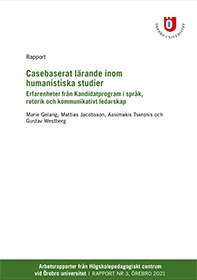
In summary, we emphasize that these criteria should not be considered as a fixed template; instead, we propose that they be regarded as a source of inspiration and let applicable fields of practice and the discipline itself dictate which criteria are relevant.
Working Paper 2
Författare: Maria Ojala
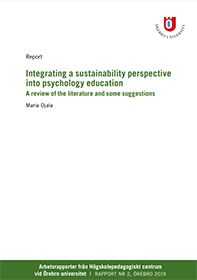
Working Paper 1
Skrivutveckling i stora studentgrupper. Erfarenheter från ett pedagogiskt utvecklingsprojekt (2019)
Författare: Karin Gustafsson, Erik Löfmarck, Lisa Salmonsson och Ylva Uggla.
